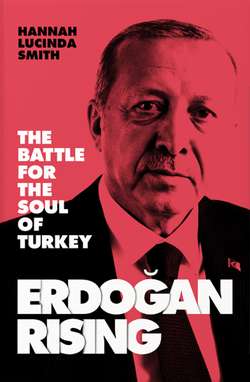Читать книгу Erdogan Rising - Hannah Smith Lucinda - Страница 20
Turkey’s cults
ОглавлениеMaybe it was because I wasn’t looking for them, but I didn’t pick up on the first hints of Turkey’s personality cults until I had been there for several months. Although I was living in Antakya I was barely connected to Turkey at first. I worked inside Syria, hung out with Syrian refugees in Turkey during my downtime, and devoted most of my attention to the war over the border. Turkey was the place I came back to at the end of assignments in the war zone, to drink beers and wear sleeveless tops and enjoy the unlimited electricity and hot water on tap. I sat in shisha cafés in the Turkish border towns as I wrote my articles about what was happening on the other side of the frontier and whatever was going on politically in Turkey was just background noise – unless it overlapped with what was happening in Syria.
I knew of Atatürk, of course. Every Turkish guidebook mentions him, and warns tourists not to speak ill of him in public. I also remembered a passage in a book I had read as a teenager, written in the 1930s by a Turkish woman who had been so proud when her leader travelled to Europe wearing a suit and trilby hat like every other modern leader. Apart from anything else there is no way to avoid Atatürk in Antakya; a crude rendering of his face is cast in lights on the dramatic mountains that loom behind the town, visible from every street and rooftop terrace. The first time I saw the stylised line drawing of his face that is rendered in paint or metal signage in every public office in Turkey, I was struck by how much he bears a likeness to the British pop star Sting.
Erdoğan and the AKP I knew of mainly because they rose to power when I was in my first year of university in Manchester. One of my classes focused on contemporary European politics – a hopeful, expansive subject at that time. The theme de jour was the endless possibilities for EU enlargement, and the imminent accession of the central European states that had once been Soviet satellites. In my seminar that day we had discussed the Turkish elections and their implications for Europe. Amid all the doom of that year – the slow cranking up to the war in Iraq, the worsening quagmire in Afghanistan – it seemed to be a glint of hope. The Turkish secularists who were howling at the rise of these seemingly benign Islamists were the ones who looked like fundamentalists.
The Gezi Park protests, which started when I had been living in Turkey for three months, were the first major news story I took note of. They made small waves down in Antakya, where the local population of Turkish Alawites – members of the same sect of Shia Islam as Bashar al-Assad – held thinly attended protests in the main square. Maybe my views on Gezi at that time were coloured by the Syrians surrounding me: they mostly viewed Erdoğan as their champion – no other world leader was opposing Assad and welcoming refugees so consistently – and they distrusted the Turkish Alawites for their kinship with Assad’s hated regime in Syria. The tear gas used by the Turkish police to put down the demonstrations in Taksim seemed minor compared to the live rounds fired by Syrian security forces on protesters there.
But, after Gezi, I started noticing how Erdoğan was becoming much more than a prime minister. When new football stadiums opened, he would play in the inaugural matches – and always, without fail, score a goal. He appeared on an evening chat show and sang a lilting Turkish song in a tuneless voice, to enthusiastic applause. Barely a day went by when a television channel did not broadcast one of his speeches or visits. After he gave up the job of prime minister and won the presidential elections in 2014, his picture started appearing everywhere. And when the AKP won in parliamentary elections a year later, my Syrian boyfriend’s father phoned from Saudi Arabia, where he was living. He had never even visited Turkey.
‘Erdoğan! Erdoğan! Erdoğan!’ he sang in delight.
That was where my fascination with Erdoğan and the people who idolise him started – the moment when I became obsessed with untangling the appeal of the Turkish president.
